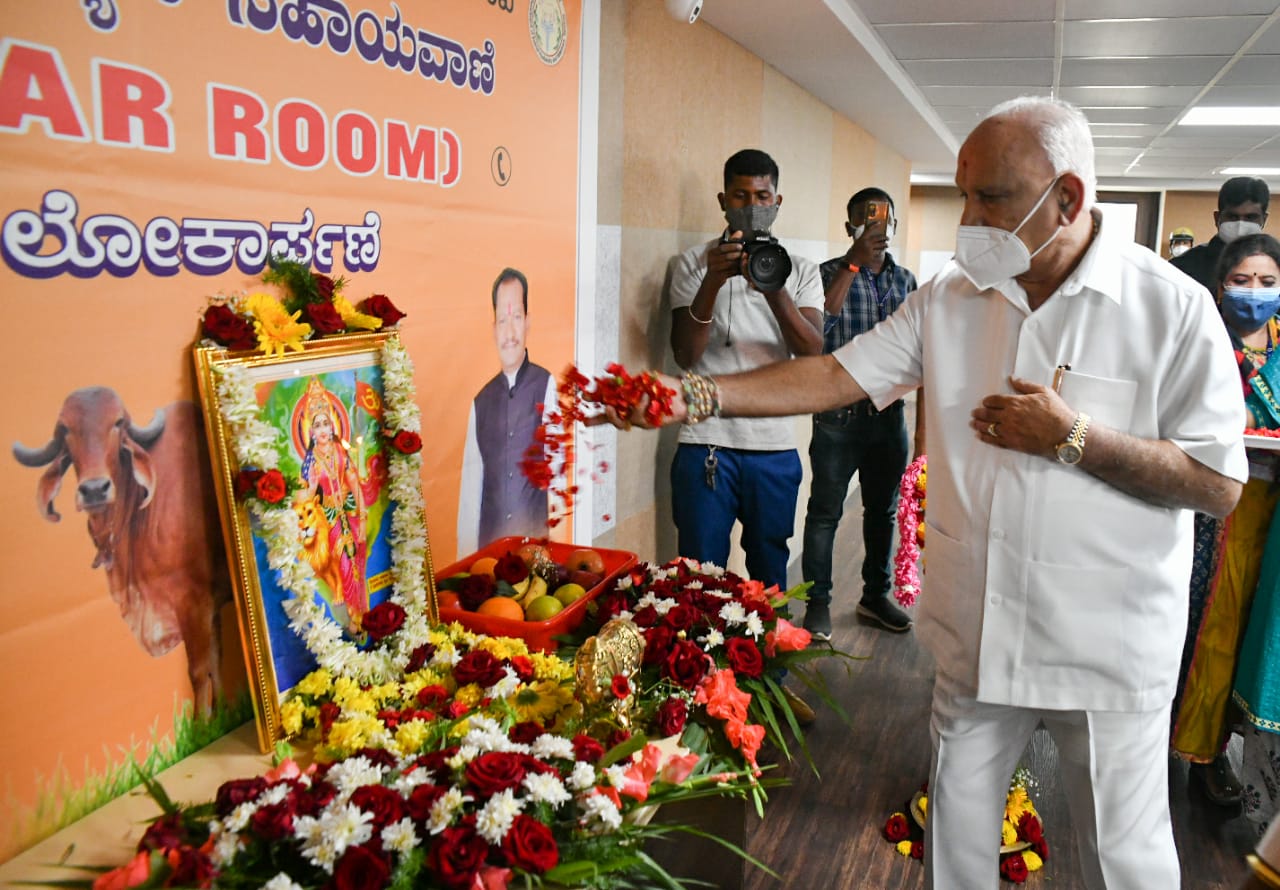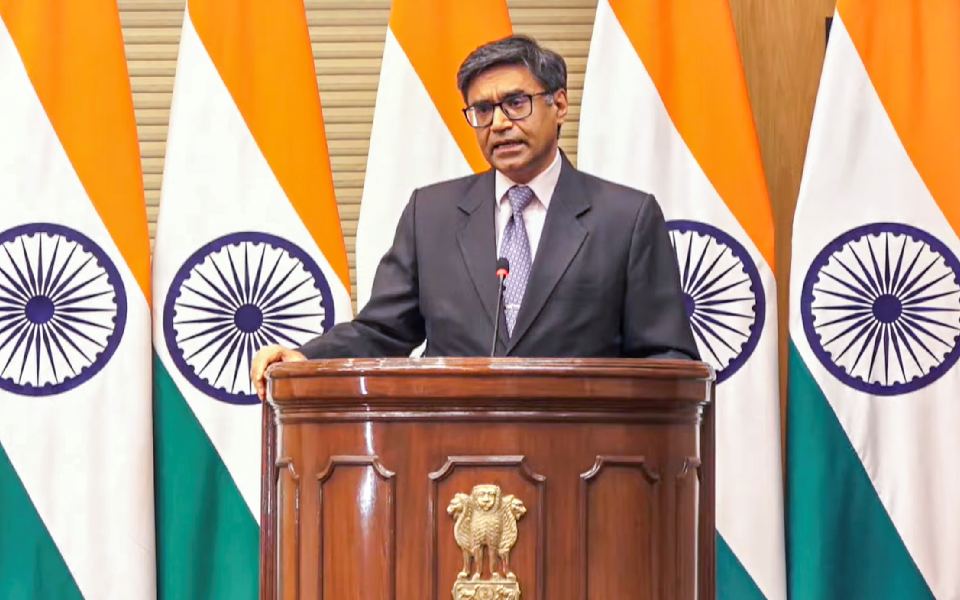Bengaluru, June 23: Karnataka Chief Minister B S Yediyurappa on Wednesday launched the first-of-its-kind animal welfare war room here to reach out to dairy farmers, cattle-breeders and increase the health and productivity of livestock.
The war room has been set up at the Commissionerate of Animal Husbandry and Veterinary Services (CAHVS).
An animal welfare helpline number has been set up at the CAHVS at an expense of Rs 45 lakh.
The helpline, which would be available round the clock, would work to protect livestock against disease, natural disasters and human-caused harm and cruelty.
The welfare helpline would receive complaints, queries or suggestions through telephone, WhatsApp, Twitter, Facebook, Instagram, e-mail and publish the daily statistics on the department website.
Underlining the importance of cattle, the Chief Minister said, "Animal husbandry has a huge contribution to the country's GDP."
Animal Husbandry Minister Prabhu Chavan said the war room would be a boon to the dairy farmers and cattle-breeders as it would address their concerns.
According to him, the Animal Husbandry Department has taken animal welfare service to the farmers' doorstep.
Chavan said the department is working hard to maintain the health of the livestock and he urged the farmers to make use of the helpline.
ಮುಖ್ಯಮಂತ್ರಿ @BSYBJP ರವರು ಇಂದು ಪಶುಪಾಲನೆ ಮತ್ತು ರೈತರ ತರಬೇತಿಗೆ ಸಂಬಂಧಿಸಿದ 24x7 'ಪ್ರಾಣಿ ಕಲ್ಯಾಣ ಸಹಾಯವಾಣಿ'ಯನ್ನು ಉದ್ಘಾಟಿಸಿದರು.
— CM of Karnataka (@CMofKarnataka) June 23, 2021
ಪಶುಸಂಗೋಪನೆ ಸಚಿವ @PrabhuChavanBJP ಮತ್ತಿತರರು ಉಪಸ್ಥಿತರಿದ್ದರು. pic.twitter.com/FzZoFyNjxI
Let the Truth be known. If you read VB and like VB, please be a VB Supporter and Help us deliver the Truth to one and all.
Dubai, May 9 (PTI): The PCB's plans to conduct the remaining Pakistan Super League matches in the UAE may not succeed as the Emirates Cricket Board is "unlikely to approve" its request due to the border tensions between India and Pakistan.
A source close to the developments in the Emirates Cricket Board (ECB) has indicated that the Board is set to reject the request from the Pakistan Cricket Board (PCB), which has already announced that the PSL would be held in the UAE.
The source has cited "security concerns potentially emanating from the rising tension between India and Pakistan."
It is learnt that the recent developments have made the Emirates Cricket Board "vary of being perceived as an ally of PCB", which it believes the act of hosting the PSL may suggest.
"The Emirates Cricket Board has enjoyed a strong relationship with BCCI in recent years having hosted the 'India' edition of the ICC T20 World Cup 2021, editions of the IPL as well as India matches during ICC Champions Trophy 2025," the source further stated.
Dubai is also the headquarter of the International Cricket Council, which is currently headed by former BCCI secretary Jay Shah.
"The UAE has a diverse South Asian population which enjoys cricket. Hosting a tournament like the PSL in the midst of such tense circumstances could vitiate harmony, pose security risks and stir unnecessary friction between communities," the source said.
The PCB said early this morning that the last eight PSL fixtures, which were previously scheduled in Rawalpindi, Multan and Lahore, will now be staged in the UAE.
Schedule of matches, outlining the dates and venues, will be shared in due course, a statement said.
On Thursday, the PCB called off a scheduled match between Peshawar Zalmi and Karachi Kings at the Rawalpindi stadium.
India launched missile attacks on terror infrastructure in Pakistan and Pakistan Occupied Jammu and Kashmir a fortnight after the April 22 Pahalgam terror attack in which 26 people were killed.





